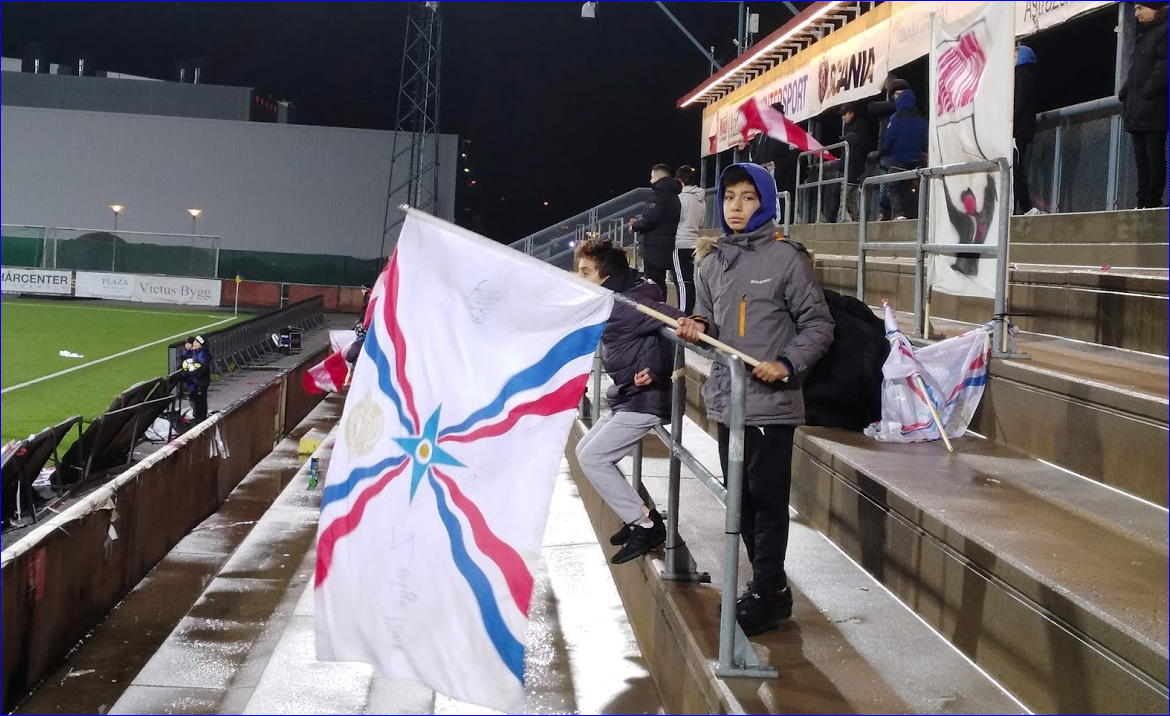


 Filipe D'Avillez)
Filipe D'Avillez)
Södertälje, which has become a home to upwards of 30,000 Middle Eastern Christians over the past decades, has not one, but two Syriac soccer teams: Assyriska, the original club founded in 1974, and their rival, Syrianska, a breakaway group formed a few years later. In the city's stadium, I am watching them play each other in the final game of the season. Syrianska are winning and will be promoted to second-tier Swedish soccer; Assyriska, on the other hand, haven't had a win for over 20 games, have already been relegated and are now watching their rivals beat them in the cold and rain. Dark. Very dark indeed.
The two teams reflect a real division in the Syriac, or Assyrian, community. The Syrianska, or Syriac, wing of the community prefers to identify as Syriac and seeks a safe haven that covers all of its ancestral lands, irrespective of national borders. The Assyriska, or Assyrian, wing prefers to identify as Assyrian, opposes the idea of an autonomous safe haven and is seen as more aligned with the regimes in Syria and Iraq. The city also has two Syriac Orthodox cathedrals, reflecting the same division.
The one I visit on a Sunday is packed full. "We have two types of liturgy: the long version, and the long version," jokes my contact, Metin Rhawi. Outside, Syriac men stand guard, wearing jackets with a cross on the arm and the words "In God We Trust" emblazoned on the back.
The city has a weekly church attendance of 8 per cent, well above the 0.4 per cent national average. On the same day I attend Armenian Catholic and Syriac Catholic liturgies -- both churches are full.
The mayor, Boel Godner, spends a good deal of her time speaking to bishops and going to churches, unlike most politicians in Sweden. She describes the large proportion of Middle Eastern Christians here in glowing terms. "There is a little bit of magic to these exotic patterns from the Middle East as part of our city now. Journalists come here to write about the awful city of Södertälje, but they find something else which clashes with their prejudice." At a time of growing suspicion of immigrants, the far-right Swedish Democrats have little traction in Södertälje, even among ethnic Swedes.
After the final whistle at the Syriac derby, the "ultras" of both teams meet, exchange greetings and pose for photographs, trying to look as tough as possible, but showing that the rivalry is not one of hatred. There is hope for unity, in soccer, in churches and in politics, and that means there is hope for the Christians who struggle to keep the language of Jesus alive.

or register to post a comment.